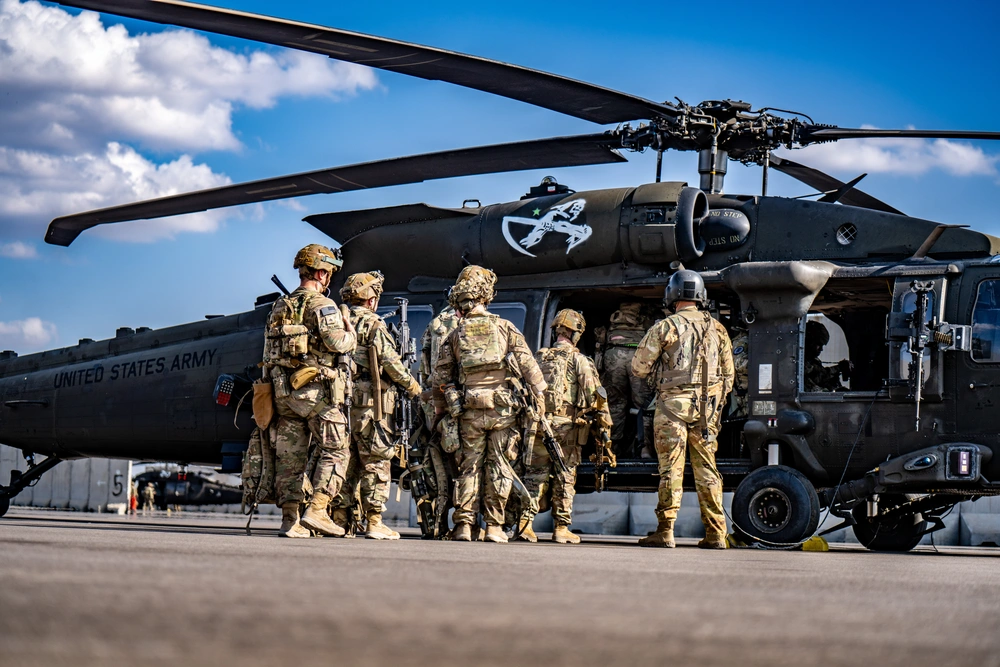The US Department of War has confirmed that US troops will remain in Iraq indefinitely under a deal signed with the Iraqi government last year that called for an end to the US-led anti-ISIS mission in the country.
According to Stars & Stripes, a senior Pentagon official has said that the US is slightly reducing its troop presence, bringing the total number of US military personnel from 2,500 to under 2,000. The majority of the remaining troops will be based in Erbil in the northern Kurdistan region.
The War Department official said that US troops were in the process of leaving the Al-Asad Air Base in western Iraq. The US will be keeping some military personnel in Baghdad who will be tasked with “bilateral security cooperation.”

While the US is keeping troops in Iraq, the official claimed that the drawdown was ending the “forever war” in the country. “First, we’re ending the forever war in Iraq,” the official said.
“Second, we’re shifting the burden of responsibility for combating ISIS in Iraq, from US and coalition forces to our Iraqi partners. We’ve trained them for a decade and they have the capability to counter ISIS and they have the will. And third, high credit to the Iraqis themselves,” the official added.
The Pentagon is also consolidating its presence in neighboring Syria, where it plans to reduce troop numbers to under 1,000. It has closed some bases in northeastern Syria, handing them over to the US-backed Kurdish-led SDF. The majority of the US troops in Syria are expected to be based at al-Tanf Garrison in the south, which is situated where the borders of Syria, Iraq, and Jordan converge.
For years, the Pentagon claimed there were only 900 US troops occupying Syria, but the Biden administration revealed late last year that the real number was 2,000. Media reports have suggested that the US may formalize its presence in Syria by signing a deal with the new Syrian government that’s led by Ahmed al-Sharaa, the former al-Qaeda commander who took power after his group of jihadists ousted former President Bashar al-Assad.


